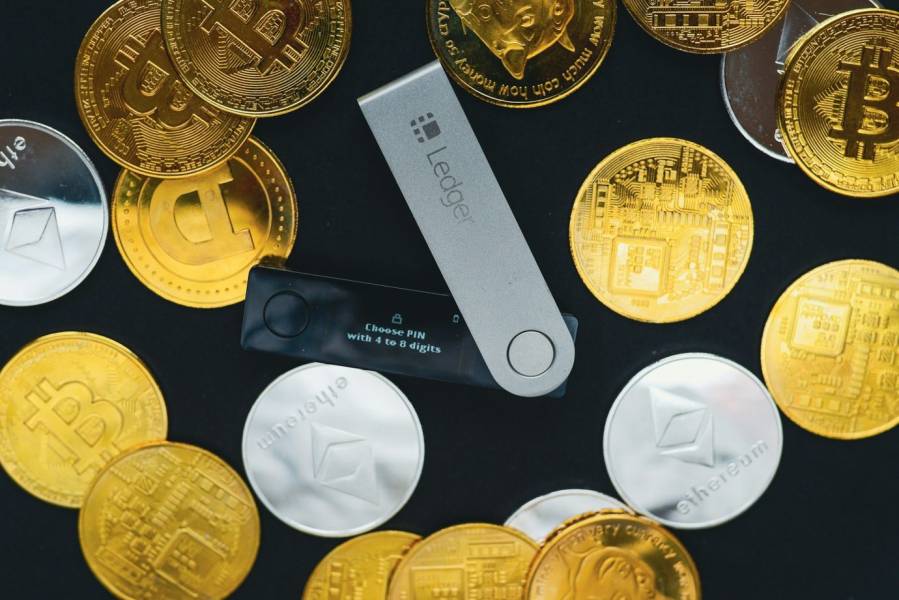The cryptocurrency market has experienced immense growth, attracting millions of investors worldwide but also catching the attention of cybercriminals. In 2022 alone, hackers stole a staggering $3.8 billion in cryptocurrency, with wallet compromises being a significant contributor to these losses. The decentralized and irreversible nature of blockchain transactions means that once funds are stolen, they are often impossible to recover.
Crypto wallet security is crucial due to the variety and advanced threats. Given these risks, understanding and implementing robust security measures for your crypto wallet is not just advisable, it’s essential for protecting your digital assets.

Update Software Regularly
One of the most critical yet often overlooked aspects of security is keeping your software up to date. Whether you’re using a mobile app, desktop wallet, or hardware wallet, updates are vital for fixing security vulnerabilities. Crypto wallets regularly release updates to address bugs or respond to new threats. Failing to install these updates can leave your wallet susceptible to attacks from hackers exploiting older versions of the software.
Always enable automatic updates where possible, or check regularly for the latest version of your wallet software. The same goes for your operating system and any other tools used to access or manage your cryptocurrency.
Enable Two-Factor Authentication (2FA)
Two-factor authentication adds an extra step to the login process, providing another layer of protection against unauthorized access. This is especially crucial for web-based and mobile crypto wallets, which are often more vulnerable due to the portable nature of smartphones. Even if someone gets hold of your password, they’ll need access to a second factor, such as a mobile device or email, to complete the login process.
While many crypto wallets offer this feature, it’s essential to use an authenticator app, like Google Authenticator, instead of SMS-based 2FA. SMS-based 2FA can be vulnerable to SIM-swapping attacks, where hackers hijack your phone number to intercept verification codes. Most reputable mobile crypto wallets support app-based 2FA, which generates time-based, one-time passwords for enhanced security.
Mobile crypto wallets such as Best Wallet, the #1 crypto wallet 2024, use additional security features like multi-factor and biometric authentication (fingerprint or face recognition). This provides an extra layer of protection, especially useful when accessing your wallet on the go. Remember to store any backup codes provided in a secure, offline location, as these will be crucial if you lose access to your authenticator app or mobile device.
Use a Hardware Wallet
While software wallets are convenient, hardware wallets offer an extra layer of security by keeping your private keys offline. These physical devices, such as Ledger and Trezor, store your crypto assets without connecting to the internet, drastically reducing the risk of remote hacking.
Hardware wallets are widely considered the safest option for storing significant amounts of cryptocurrency, as they shield your private keys from exposure to malware or phishing attacks. If you decide to use a hardware wallet, ensure that you purchase it directly from the manufacturer or an authorized retailer to avoid tampered devices.
Be Wary of Phishing Attacks
Phishing attacks are a common crypto scam used by hackers to steal cryptocurrency. These scams typically involve fake emails, websites, or messages that trick users into revealing sensitive information, such as wallet passwords or private keys. Always make sure to verify the URL of the website before entering your cryptocurrency details to protect yourself from phishing scams. Ensure that you are visiting the official website of your wallet provider or exchange. Refrain from clicking on any links or downloading any attachments from unfamiliar sources, even if they appear to be from credible organizations. Using browser extensions that can prevent access to malicious websites or phishing scams can provide an additional level of security.
Backup Your Wallet
Backing up your crypto wallet is essential in case you lose access to your device or your wallet gets compromised. Most wallets provide a seed phrase (a series of 12-24 words) that acts as a backup for restoring your funds. Keep this phrase in a safe, offline location, such as a secure paper wallet or a password-protected USB drive. Never store it on cloud services or email accounts, as they are vulnerable to hacking. Ensure that no one else has access to this seed phrase, as it can be used to recover your wallet and steal your assets. Ideally, you should keep multiple copies in different secure locations.
Monitor Transactions and Set Alerts
Keep a close eye on your wallet’s transaction history and set up notifications for any transfers. Many wallets and exchanges allow you to set up real-time alerts for transactions over a certain threshold. If you notice any suspicious activity, such as unauthorized transfers, it’s crucial to act immediately. Contact your wallet provider or exchange, change your passwords, and if necessary, move your assets to a more secure wallet. Monitoring your wallet regularly will help you catch potential breaches early, limiting the damage that can be done.
Secure Your Backup Devices
In addition to securing your primary wallet, it’s essential to protect any devices you use for backups or transactions. For example, if you store your seed phrase on a USB drive, ensure it is encrypted and stored in a safe place. The same goes for any secondary phones, tablets, or computers you use to access your wallet. Keep these devices locked with strong passwords or biometric security, and regularly update their software to stay protected from the latest threats.
If possible, keep backup devices offline when not in use to minimize exposure to malware or hacking attempts.
Conclusion
Securing your cryptocurrency wallet is not a one-time task but an ongoing process. By following these essential tips, updating your software, using hardware wallets, enabling 2FA, and staying vigilant against phishing, you can significantly reduce the risk of losing your assets. Remember, cryptocurrency transactions are irreversible, and once your assets are gone, there’s usually no way to recover them. Prioritize security at every step, and you’ll be well on your way to safeguarding your investments in the volatile yet exciting world of crypto.
HedgeThink.com is the fund industry’s leading news, research and analysis source for individual and institutional accredited investors and professionals



































